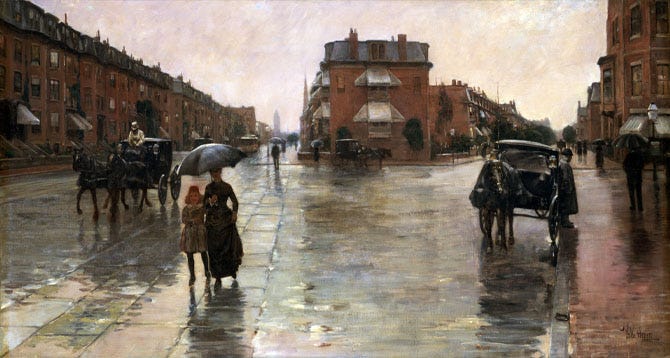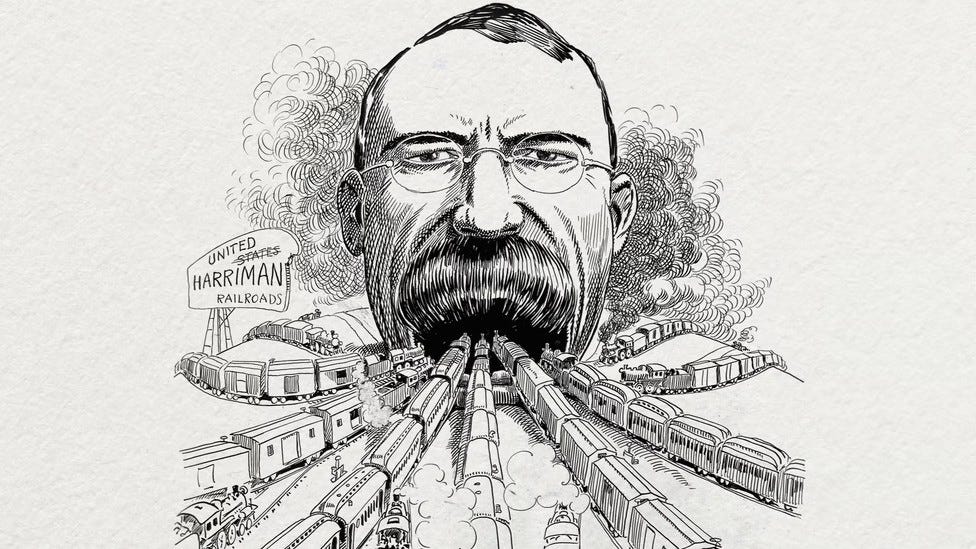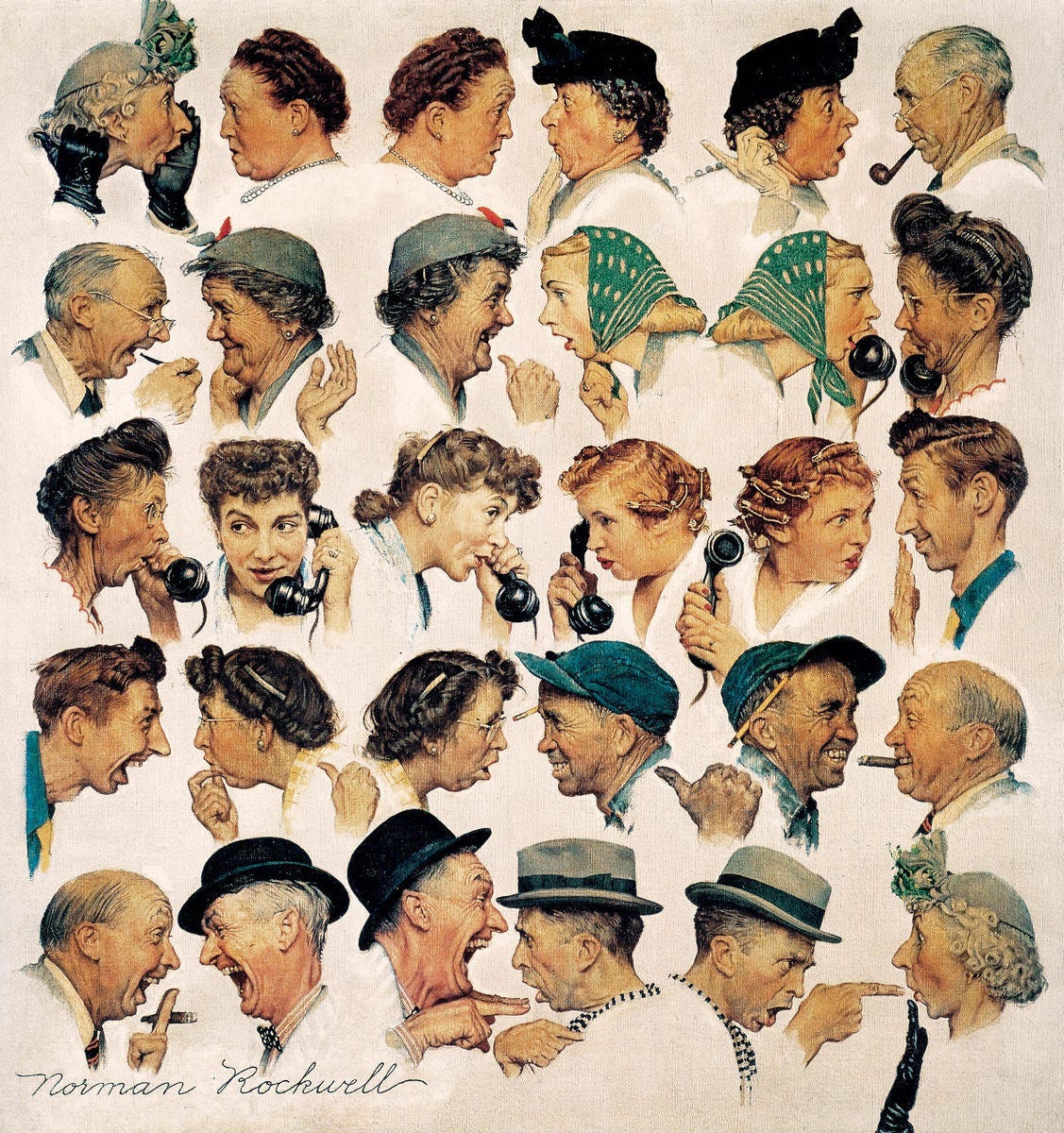As I write this piece we are on the 43rd day of Donald Trump’s appointment as the 47th President of the United States of America. In just seven short weeks Trump has signed 76 executive orders, encompassing pressing issues such as defending women from gender ideology extremism and restoring biological truth to the federal government, addressing the residual wrongs committed to “certain classes” of people in South Africa, establishing a White House Faith Office and ending the tyranny of paper straws . The volume and time frame with which Trump has passed the orders are the highest clip seen in over 40 years by a substantial margin. In tandem with his use of the bully pulpit on issues such as immigration, the War in Ukraine and “government waste”, Trump appears to be, if you observe conservative reddit and X threads, giving the American people what they voted for. Promises made. Promises Kept.
That said, I have noticed discourse surrounding Trump’s agenda take an interesting turn over these weeks. For so-called conservatives it has left the realm of “Trump is negotiating” or “we are winning” to “I trust my president, Lets see what happens” - especially when he talks about flattening Gaza, annexing Greenland, or encouraging oligarchic migration. The left, on the other hand, has remained more or less consistent in their branding of Trump as a fascist intent on destroying the norms of our post WWII world, and their intent on pointing this out at every waking moment, something that is becoming increasingly more difficult to do due to how flooded the zone is.
Tomato Tariffs
I don’t have enough time or words to explain all the shit this guy’s doing, so I’ll get into what I think is significant. Bear with me here, there will be a good payoff:
No matter which side of the fence you’re on, the last four days have made not only Americans, but people all over the world, finally ask themselves the only question that matters: “The fuck is this nigga actually doing?” Today (March 4th, 2025) brought that sentiment to a fever pitch with Trump’s promised tariffs on Canada and Mexico beginning. Canada has already announced retaliatory tariffs while Mexico’s President Steinbaum prepares her country to impose their own, with many predicting tomatoes (which the United States imports BILLIONS of from Mexico), amongst broader items, will be at the center of the country’s economic theater of war.
The President actually following through with his promise sent the world into a tailspin. The Stock Market “crashed” as Trump and Canada’s Premier (Governor?) Justin Trudeau announced their measures, TSMC CEO C.C Wei announced a supplemental 100 billion dollar investment into the United States under the auspices of it being “a matter of economic security”, and buying more protection from China, and just over 100 years after Secretary of State Hay, on behalf of President Teddy Roosevelt signed the Hay-Bunau-Varilla Treaty with Panama, American Multinational investment company BlackRock acquired a significant number of Panamanian ports along the Canal from Hong Kong owned C.K Hutchinson. These moves, including the fiasco of the Ukranian Minerals for peace deal and various other economic ponderings of the President, demonstrate an administration more powerful than it was in 2016 and appears poised to reshape the country. As it is with every world breaker who comes into power, the question is, for whom?
Return of the Robber Baron?
When talking about the current administration, you speak with any entrepreneur, armchair economist, or idiot like me, and at some point, you’ll hear the term “Robber Baron.” The Robber Barons were industrialists who essentially built America. Vanderbilt, Rockefeller, Carnegie, and Morgan rapidly grew their wealth and influence on the backs of a poor and exploited populace and a weak government that had never experienced such a rapid monetary assault. Their actions, alongside the policies that emboldened them, would aid in creating the Great Depression, which would directly lead to the New Deal policies of the FDR administration. Many have seen the return of Trump as a signal of a return to that era where the only thing that mattered was money.
Admittedly, I’ve been very loose with the tongue using this term. Still, I have found it more effective for explaining at least a modicum of what we are soon to experience than unpacking Varofakian Techno-Feudalist theory or Curtis Yarvin’s accelerationist drivel. Trump ostensibly seems to be an avatar of the social-Darwinist, Laissez-Faire, “Gospel of Wealth” and economic manifest destiny philosophies his industrialist forefathers believed in, but to firmly place him in that bucket would be intellectually disingenuous.
The President’s threats of tariffs and their implications echo the ideas seen by those of the Robber Baron era, such as the Morrill, McKinley, and Dingley Tariffs. Still, many of these actions don’t come close to the ones Trump imposed, such as his 30-50 percent tariffs on solar panels and washing machines and his infamous ones on Chinese steel. For Trump, these numbers do not matter as much as their symbolism. He is, for all of his faults and “failed” businesses, an extremely savvy businessman who understands the paradox of American exceptionalism—that we have become so exceptional, so wealthy, that we no longer truly produce anything. We are here to buy, and our global partners need to sell to us to keep their books in the black.
If Trump were truly a part of a Neo-Robber Baron class, his economic actions would be more severe. They would not be waved around purely as theatrical schadenfreude bargaining but be swiftly imposed as matters of national security—like his tariffs on Chinese steel, which Biden later expanded. Trump is, unironically, a deal-maker. He is, and always has been this. His approach, however, has changed since his ascension to the presidency. He now has a military to back his unpredictable deal-making strategies.
The Madman
During an argument with the Indian Premier about threats of Atomic aggression in 1954, Mao Zedong, Chairman of the still-in-its-infancy People’s Republic of China allegedly remarked that “if half of humanity is destroyed the other half will remain but imperialism will have been totally destroyed”. Three years later, when speaking to a Yugoslavian envoy he (again ALLEGEDLY) said, “We have a very large territory and a big population. Atomic bombs could not kill all of us” and then, in 1965 Zedong would (this time not allegedly) intimate to American Journalist Edgar Snow that the Atom Bomb was a “Paper Tiger”. Mao was a true iconoclast, a leader of unflinching vision. He, as the leader of the Communist Party’s efforts against the Kuomintang and his actions post the Civil War would sacrifice tens of millions for the sake of progress. The Chairman was a man who was purely concerned with the bottom line - the feelings of the people did not matter as much as the development of the nation and its warding off of capitalist, imperialist aggression from its then, much bigger adversaries, adversaries such as Nikita Khrushchev, who, after helping China develop its bomb in the 50s, abruptly withdrew its support of a Chinese arsenal citing Mao’s rhetoric a “warlike” instigation.
Like Mao, Khrushchev was similarly malcontent with the global order and, to put it simply, was a fucking crashout. Known for his irascibility and shrewd negotiation tactics, Khrushchev would be at the center of polarizing moments both domestically and globally. The aforementioned Sino-Soviet Split, his authorization of the Berlin Wall’s construction, the 13-day-long Cuban Missile Crisis, and his investment in the development of communism in the newly decolonized world all highlight a leader who, much like Mao, believed himself to be a historical force above conventional politics.
But unlike Mao, whose ideological rigidity made him predictable in his extremism, and Khrushchev, whose erratic nature ultimately made him expendable, Nixon was something else entirely. If Mao was the revolutionary and Khrushchev the opportunist, Nixon was the paranoid strategist—a leader obsessed with control, who saw enemies in every shadow, and who used state power as both a shield and a weapon. His foreign policy brilliance was matched only by his domestic insecurity, and his ability to command loyalty ultimately collapsed under the weight of his own paranoia.
Which brings us back to Trump.
There is an argument to be made that Trump, in his way, is a fusion of these three men. Like Mao, he possesses an almost religious belief in his righteousness—he alone knows what is best for America, and he alone will execute that vision, consequences be damned. His rhetoric, much like Mao’s, is absolute: there are no half-measures, no room for nuance. But he also mirrors Khrushchev in his unpredictability—one-day threatening war, the next claiming he never wanted it; one day promising to "drain the swamp," the next cutting deals with career politicians; one day demanding tariffs, the next offering exemptions to his favored industries. And like Nixon, he is fundamentally a man consumed by paranoia, obsessed with loyalty, and viewing governance as a means of protecting himself from perceived enemies.
The key difference, however, is that neither Mao nor Khrushchev operated within a system designed to check their power. Trump, for all his bluster, is still bound (at least in theory) by the institutions of American governance. Yet, his return to power has shown that these institutions—whether through acquiescence, incompetence, or sheer exhaustion—are increasingly unable or unwilling to constrain him. And unlike Khrushchev, who was ultimately betrayed by his own party, Trump has spent the last decade reshaping the GOP into a personalist vehicle. There is no equivalent of the Soviet Central Committee waiting in the wings to depose him; his fate, and by extension America's, now rests entirely in his hands.
The question isn’t whether Trump is a madman - he is. The question is: what happens when a madman faces no real opposition?
The Spectacle of Opposition
During the 2015 election cycle, I was still living in China. On the eve of the election (or election day for those “behind” the Sino timezone) Me and my partner got into an argument as we usually did when it came to politics. It was never truly relationship threatening, but always just enough to get one of us or both of us out of the house. On this day, I was the one expelled from the crib, ending up at one of my usual drinking haunts called C’s. As I drank, and as the election results began to pour in, I began to notice something I’d never seen at this bar, at least not to this degree - foreigners. Group by group, people who I assumed were my fellow countrymen rolled in clad in black suits with white shirts and red ties - a mirror of the soon to be elected President. While they sat around, speaking about their excitement at the change in global order coming, the weakness and sameness of the democratic party, and how, finally, someone with balls was going to enter office in our lifetimes, a woman, also clad in the same fit as the others approached me at the bar and asked; great night isn’t it? To which I replied, “In many ways, it seems like the season finale of America. Other than that, good money”.
Amused, she dove deeper into conversation with me. We discussed the election cycle, the years of governmental inefficiency, and most importantly, the lack of backbone our partisan politicians had to change anything. This, funny enough would be the first time I would ever speak to someone about Mark Fisher’s idea of Capitalist Realism and how those in power tell us there is no alternative as a mask that hides their weakness, lack of creativity, and will to even make things better for themselves, let alone us, the plebs. “Trump came in like a battle rapper and steamrolled them,” I said. “He understands that America, at its core is weak and wants someone to remove the responsibility of accountability from its people and representatives. They rather play house than do anything worth shit”.
As the crowd cheers came and went and as I started my slow walk back home, I couldn’t stop thinking about how….these people, in their excitement of owning the libs and electing some weirdo cosplayed as the guy, celebrating his visage as if he were some holy figure. In the then two years I’d been gone from America, I was so happy to be away, to not have to deal with any of this shit. Unfortunately, I thought, one cannot escape the specter of America, which now just elected arguably its greatest engineer of spectacle in Trump. They would resist him, but it wouldn’t matter because he’ll turn it into comedy. They would try to play to our morals, but what can you tell a populace who, despite what they say, have none? All threats to him would fall to the wayside because no matter what side of the fence you’re on, this is what you’ve been asking for.
It’s not just that Trump faces no meaningful resistance—it’s that opposition itself has become a performance. American politics has shifted from a contest of competing visions of governance to a carefully choreographed stage production, where the rituals of resistance are upheld but the mechanisms of actual power remain untouched.
Democrats may posture about democracy being under threat, but their opposition is largely symbolic—impeachment proceedings that go nowhere, lawsuits that drag on until they’re moot, and outraged press conferences that fuel Trump’s media cycle rather than constrain his power. The courts may still throw up roadblocks, but the legal battles are often too slow to stop policies in real time. Even traditional Republican power centers—donors, think tanks, and foreign policy hawks—have either bent to Trump’s will or abandoned any hope of countering him.
Trump understands this better than anyone. His policies, his executive orders, his tariffs—they aren’t about achieving concrete outcomes; they are about creating the image of action. His political power is built on narrative control, on the perception that he is fighting for something, whether or not the substance of his actions matches his rhetoric. This is why his base remains loyal despite his inconsistencies—because his politics aren’t about policy, they are about performance.
In a world where politics - your side or their side is performative, what does that mean for governance? If the institutions meant to check power are reduced to reactionary theater, then who governs? Are corporations and financial interests quietly filling the void? Are unelected bureaucrats and military officials making the real decisions while the spectacle plays out for public consumption? More critically: if politics is now purely symbolic, can it ever be reversed? Or have we entered an era where governance itself is just another reality show, with Trump as its star performer?
I say fuck it, let the chips fall where they may. As I mentioned we got what we asked for, we wanted bold and it came. Vox Populi.









